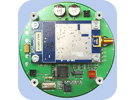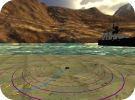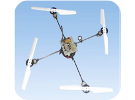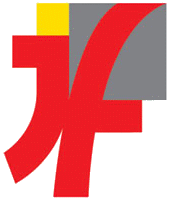Scale-FreeBack
Contact: Carlos Canudas de Wit
PhD students: Stéphane Mollier, Nicolas Martin, Martin Rodriguez, Umar Niazi
Official website: Scale-FreeBack
Scale-FreeBack is an ERC Advanced Grant 2015 awarded to Carlos Canudas-de-Wit, Director of Research at the National Center for Scientific Research (CNRS), covering the period September 2016-2021. The ERC is hosted by the CNRS, a government-funded research organization, under the aegis of the French Ministry of Research. The project will be conducted at the GIPSA-Lab at Grenoble (a CNRS research unit associated with the University of Grenoble-Alpes, UGA) working in close collaboration with the NeCS group (a joint CNRS-INRIA team). Primary funding will be used for recruiting PhD students and post-docs, and to conduct proof-of-concept studies.
Motivation. Scale-FreeBack has been designed from the observation that systems have become far more complex than the analytical tools available for managing them. Complex systems have many components, communicate with each other, have self-decision-making mechanisms, share an enormous amount of information, and form networks. Research in control systems has challenged some of these features, but not in a very concerted way. Examples are intelligent traffic systems benefiting from many technical innovations; mobile phones, radars, cameras and magnetometers can be used to measure traffic flow and provide large sets of valuable data. Vehicles can communicate with the network infrastructure, as well as each other. However, these huge technological advances have not been used to the full so far: traffic lights are far from functioning optimally and traffic management systems do not always prevent the occurrence of congestions. Scale-FreeBack is a project with ambitious and innovative theoretical goals, which were adopted in view of the new opportunities presented by the latest large-scale sensing technologies.
Challenges & Objectives. The overall aim of Scale-FreeBack is to develop holistic scale-free control methods of controlling complex network systems in the widest sense, and to set the foundations for a new control theory dealing with complex physical networks with an arbitrary size. Scale-FreeBack envisions devising a complete, coherent design approach ensuring the scalability of the whole chain (modelling, observation, and control). It is also expected to find specific breakthrough solutions to the problems involved in managing and monitoring large-scale road traffic networks. Field tests and other realistic simulations to validate the theory will be performed using the equipment available at the Grenoble Traffic Lab center (see GTL), and a microscopic traffic simulator replicating the full complexity of the Grenoble urban network.
In connections with these objectives, the project addresses the following theoretical questions:
- When and how can a complex large-scale (homogenous) network system be represented by a scale-free model having the requisite controllability/observability properties?
- How can the internal states of a scale-free network system be monitored and estimated by using information originating from sources of various kinds?
- How will it be possible to design scale-free control algorithms and make them resilient to changes of scale, node/link failures/disconnections/attacks?



















